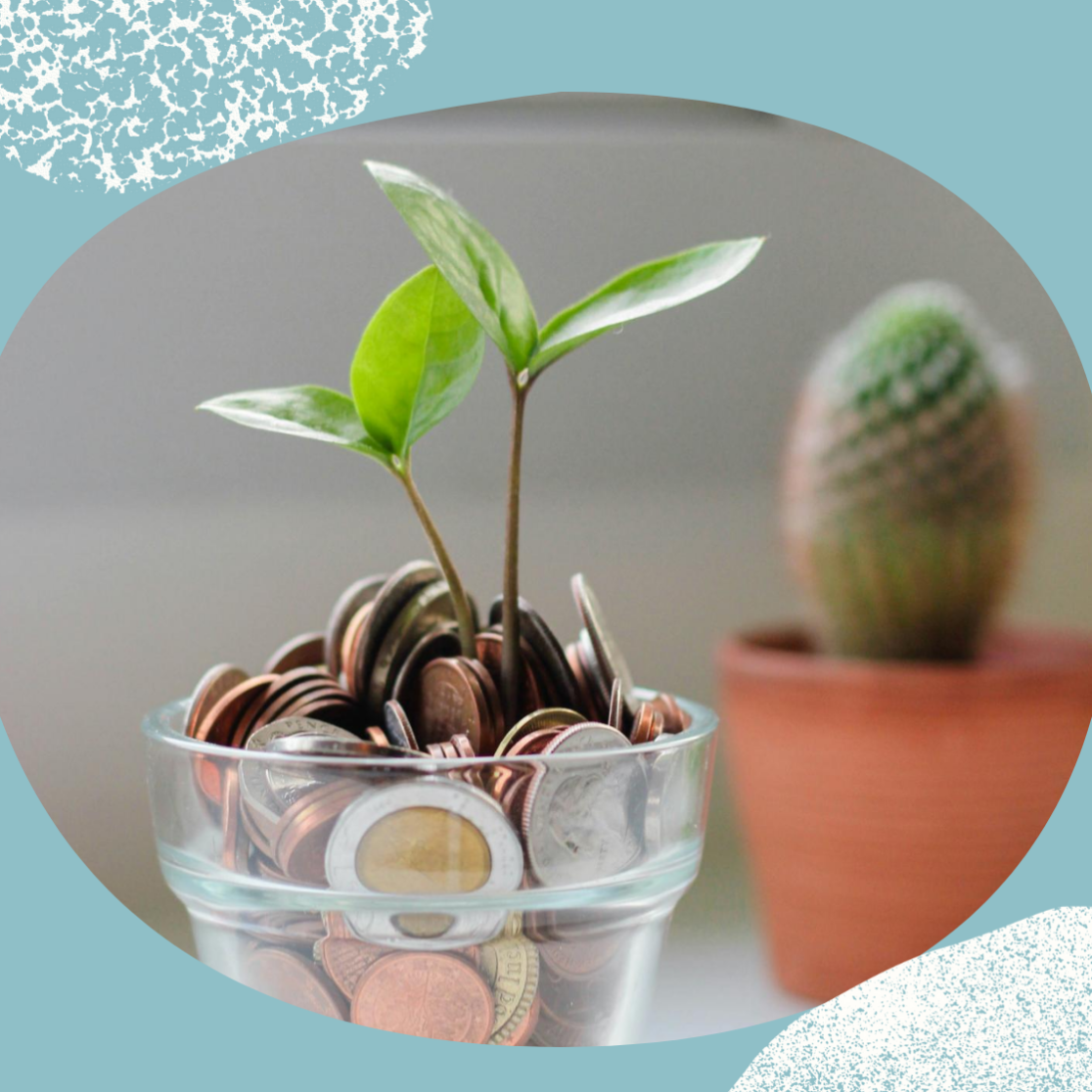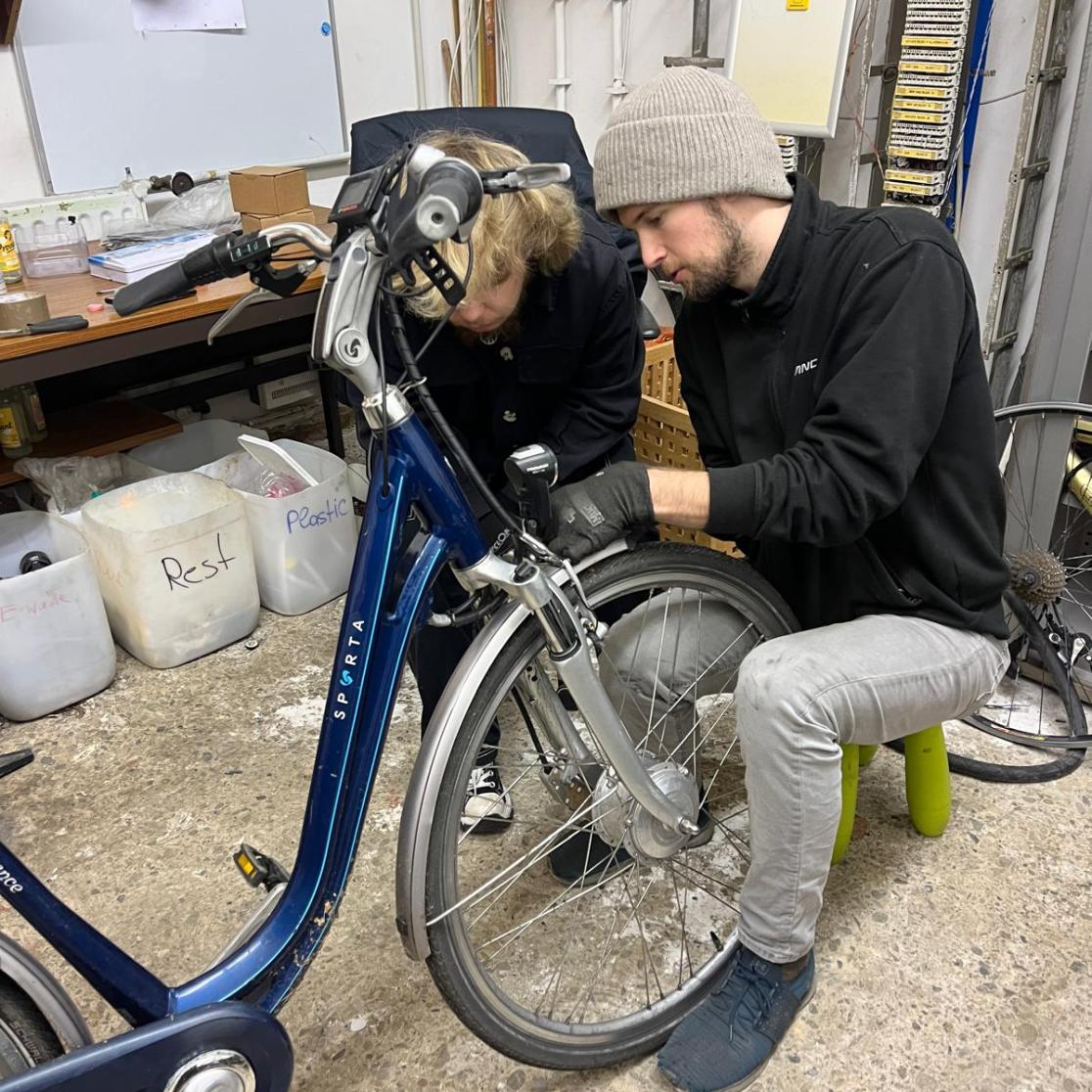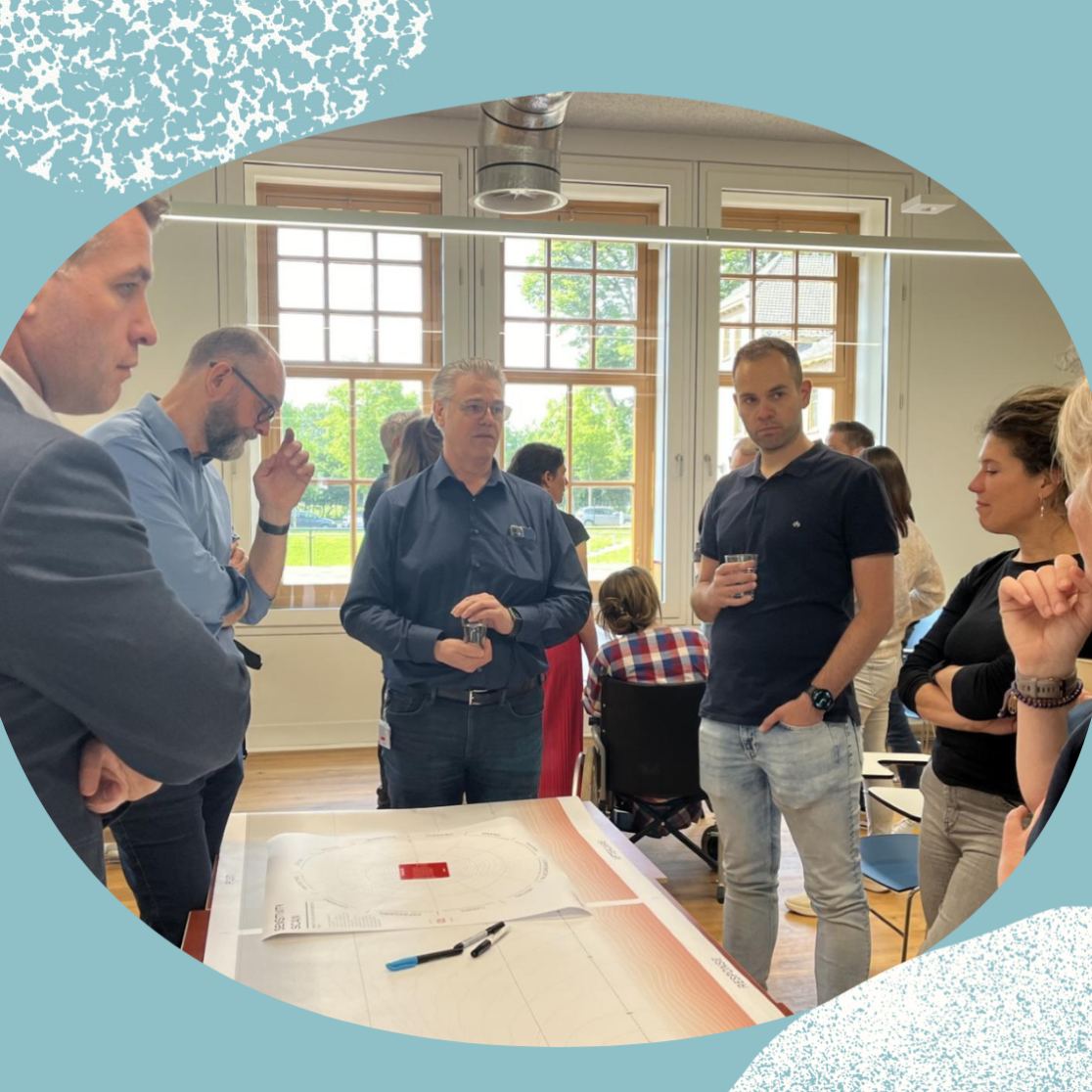Van hier...naar een circulaire UM-campus in 2035
Circulariteit gaat over verstandig en efficiënt omgaan met grondstoffen: minder verspillen, meer hergebruiken en ontwerpen met gesloten kringlopen in gedachten. De Universiteit Maastricht werkt aan een volledig circulaire campus in 2035. Dit betekent het minimaliseren van afval, prioriteit geven aan hergebruik, reparatie en recycling, en het kiezen van materialen en leveranciers die aansluiten bij circulaire principes.
Maar circulariteit gaat verder dan afvalbeheer. Het is een mentaliteit die we verankeren in ons onderwijs, onderzoek en onze activiteiten. Aan de UM laten we ons leiden door de R-strategieën van circulariteit: Refuse, Rethink, Reduce, Reuse, Repair, Refurbish, Remanufacture, Repurpose, Recycle en Recover. Deze strategieën helpen ons opnieuw na te denken over hoe we systemen ontwerpen, materialen gebruiken en toeleveringsketens structureren. Door middel van initiatieven zoals de Circularity Fresk en specifieke cursusinhoud leren studenten hoe ze deze principes in de praktijk kunnen toepassen. Onze campus wordt een proeftuin voor circulaire innovatie en bereidt studenten voor op veranderingen in de wereld van morgen.
Ontdek wat we doen!
Onderzoeksoproep Circulariteit
In 2024 lanceerde de UM een onderzoekszaadfonds van € 350.000 om interdisciplinaire samenwerking rond het thema Klimaatverandering te bevorderen. In 2025 zal de ‘Research Call’ specifiek circulaire onderzoeksprojecten uitdagen. De oproep stimuleert specifiek gezamenlijke voorstellen tussen faculteiten, omdat complexe duurzaamheidsuitdagingen uiteenlopende expertise vereisen. Dit initiatief versterkt niet alleen het onderzoeksprofiel van de UM op het gebied van duurzaamheid, maar genereert ook kennis met directe maatschappelijke relevantie. Het weerspiegelt het streven van de universiteit om onderzoek mogelijk te maken dat systemische verandering ondersteunt. De resultaten van deze projecten zullen worden gedeeld met zowel academische als regionale partners.

Swap Room
De Swap Room bevindt zich in de Sustainability Hub en biedt studenten een plek aan om kleding en accessoires te ruilen - helemaal gratis. Met tot nu toe meer dan 1.000 geruilde kledingstukken brengt de ruimte de principes van circulariteit op een leuke en toegankelijke manier tot leven. Het moedigt bewuste consumptie aan en helpt textielafval te verminderen, een van de meest vervuilende industrieën ter wereld. De Swap Room wordt gerund door studentvrijwilligers en organiseert regelmatig thema-evenementen en is een levendig onderdeel geworden van de duurzaamheidscultuur op de campus van de UM.
Bike repair shop
De fietsreparatie-werkplaats voor studenten van de UM ondersteunt duurzame mobiliteit door fietsen op de weg en uit de afvalstroom te houden. Er zijn al meer dan 100 fietsen gerepareerd, vaak gratis of tegen zeer lage kosten. Studenten leren praktische reparatievaardigheden, bevorderen een doe-het-zelf-ethos en vergroten de toegang tot duurzaam vervoer. Het initiatief draagt bij aan een fietsvriendelijke campus en vermindert de afhankelijkheid van auto of openbaar vervoer. Het bevordert ook de gemeenschapsvorming en de zelfredzaamheid van studenten door het delen van vaardigheden en collegiale ondersteuning. De winkel is geïntegreerd in de bredere doelstellingen van het bevorderen van koolstofarm leven aan de UM.

UM Transitieplatform
Het UM Transitie Platform verbindt onderzoekers, docenten, studenten en externe partners die werken aan transformatieve duurzaamheidsuitdagingen. Het dient als een ruimte om ideeën te delen, gezamenlijke initiatieven te ontwikkelen en samen te werken aan complexe transities zoals de overgang naar een circulaire economie, klimaatneutraliteit en sociale gelijkheid. Het platform speelt ook een sleutelrol in de Euregionale uitrol, door UM-expertise te koppelen aan regionale actoren om veranderingen buiten de universiteit te versnellen. Door mensen en perspectieven samen te brengen, bevordert het platform innovatie en systemisch denken.
